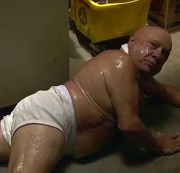|
Which horse film is your favorite? This poll is closed. |
|||
|---|---|---|---|
| Black Beauty |
|
2 | 1.06% |
| A Talking Pony!?! |
|
4 | 2.13% |
| Mr. Hands 2x Apple Flavor |
|
117 | 62.23% |
| War Horse |
|
11 | 5.85% |
| Mr. Hands |
|
54 | 28.72% |
| Total: | 188 votes | ||
|
Thought this was kind of interesting: "We note there is an inherent trade-off between transmissibility and immune escape, and that the worst-case scenario of both very high transmissibility and immune escape is rejected a posteriori by the data."
|
|
|
|

|
| # ? May 27, 2024 09:13 |
|
Gio posted:https://twitter.com/peterhotez/status/1449052799946395657?s=21 For more context, this is in Delhi during a period where "overall vaccination levels were only about 5% in Delhi, most healthcare workers had received one or two doses of ChAdOx1-nCov19 (Astra-Zeneca / Serum Institute, India) or BBV152 (Bharat Biotech, India)." So this is discussing Delta reinfection of people with mostly only natural immunity and no significant vaccination, which is what Hotez is mentioning in the tweet text. The 27% rate is for the entire cohort of employees + families from March through July. To extrapolate that reinfection rate to other populations you'd need to compare transmission risk factors, number of exposures etc. I really am not at all familiar with pandemic precautions or living situation in Delhi during that period. To what extent are people in the cohort masking and distancing? Are they taking public transit? Etc They do note Delta is better than other variants at breaking through vaccination, the sample size is small but in line with other observations: quote:We sequenced 24 breakthrough infections starting at least one week after the first dose, collected between 22 March and 28 April at NCDC. The ratio of Delta to non-Delta lineages was 850:1211 from 20 March to 30 April. In contrast, Delta to other lineage ratio was 13:3 in sixteen breakthroughs post one dose and 7:1 in eight breakthroughs post the second dose of vaccine. While the small sample size and lack of a formal control group preclude definitive analysis, estimated higher odds for Delta in vaccination breakthroughs (OR, 7.1; 95% CI, 2.4–20.9) corroborate other reports of reduced vaccine effectiveness against Delta. So yes, there's significant reinfection with Delta of people who only have natural immunity and not vaccination. Imo the kicker is, however: quote:No severe illness or hospitalization was reported in reinfections. Charles 2 of Spain posted:Thought this was kind of interesting: Oh huh I missed that. I only skimmed the paper, it's fairly short so I should give it a closer read later.
|
|
|
|
I mean they admit themselves that conclusion (like many things COVID) is based on an uncertain model, but we don't hear much about the Mu variant nowadays.
|
|
|
|
Gio posted:https://twitter.com/peterhotez/status/1449052799946395657?s=21 Like, congratulations you noticed how percentages work. Are you also going to find some country that is fully vaccinated then post that 100% of cases there are among vaccinated people and pretend you are a smart boy who disproved vaccination? According to your link 90% of people in that area have had covid. In the months following the case count dropped by like a million percent. Then of the few remaining cases 8 out of every 10 cases happened in the 10% of uninfected people.  If 100% of people had been infected then 100% of the cases would be reinfections. 90% of people being infected resulting cases dropping to 0.1% what they were, then almost all those few cases coming from the uninfected is a pretty good sign of pretty amazing resistance.
|
|
|
|
Another Twitter hot take debunked. The thread works!
|
|
|
|
Owlofcreamcheese posted:Like, congratulations you noticed how percentages work. Are you also going to find some country that is fully vaccinated then post that 100% of cases there are among vaccinated people and pretend you are a smart boy who disproved vaccination? That graph shows a month and a half out, not “months.” No one has ever said infection doesn’t confer immunity; it’s a question of how long. And well… https://www.thelancet.com/journals/lanmic/article/PIIS2666-5247(21)00219-6/fulltext quote:Reinfection by SARS-CoV-2 under endemic conditions would likely occur between 3 months and 5·1 years after peak antibody response, with a median of 16 months. This protection is less than half the duration revealed for the endemic coronaviruses circulating among humans (5–95% quantiles 15 months to 10 years for HCoV-OC43, 31 months to 12 years for HCoV-NL63, and 16 months to 12 years for HCoV-229E).
|
|
|
|
Slow News Day posted:Another Twitter hot take debunked. The thread works! If you're not going to engage with the posts yourself it's okay not to do dumb cheerleading bullshit like this. Agreeing with Horse that this is a solid takeaway: quote:No severe illness or hospitalization was reported in reinfections. Still seems less than ideal for preventing further spread or limiting covid cases in places with lower vaccination rates though.
|
|
|
|
Gio posted:Remember how earlier in the year you suggested that reinfection was vanishingly rare and immunity to coronaviruses last years, and then Delta happened, and you still don’t admit how dumb it was to say that? Oh right, you doubled down and suggested the same thing as recently as a week or two ago. Reinfections are still so rare that to pretend they are common you need to twist out a case where if you reduce infections by 30,000% and infect 90% of the population you can get 22 reinfections and pretend that is some staggering number by playing with percentages
|
|
|
|
Professor Beetus posted:If you're not going to engage with the posts yourself it's okay not to do dumb cheerleading bullshit like this. The person who posted the tweet hardly “engaged” with it, so if you’re going to demand high standards at least don’t be one-sided.
|
|
|
|
Professor Beetus posted:Still seems less than ideal for preventing further spread or limiting covid cases in places with lower vaccination rates though.
|
|
|
|
Slow News Day posted:The person who posted the tweet hardly “engaged” with it, so if you’re going to demand high standards at least don’t be one-sided. I'm not demanding high standards, I'm telling you not to be a cheerleader. Other people seemed more interested in doing the work and were doing a fine job, and if you don't have the time or energy or inclination to actually push back then don't feel obligated. e: This page could desperately use a pet tax 
Professor Beetus fucked around with this message at 01:02 on Oct 16, 2021 |
|
|
|
Owlofcreamcheese posted:Reinfections are still so rare that to pretend they are common you need to twist out a case where if you reduce infections by 30,000% and infect 90% of the population you can get 22 reinfections and pretend that is some staggering number by playing with percentages You ignored the second half of my post. What exactly do you mean when you say they are “rare?” That reinfections since March 2020 have been rare? Definitely not true. That they’re rare after a certain period? What is it? Gio fucked around with this message at 01:17 on Oct 16, 2021 |
|
|
|
I've a few friends who are teachers of young kids who say that their 2nd grade class is acting as if they're kindergarteners because they lost a year+ social development. These aren't necessarily things that we can just quickly gain back even if schools had the resources to do so, and many schools don't have the resources to put in place good sense COVID mitigation measures to have in person schooling (air filtration, air exchanges, regular testing, etc.). Kids that act poorly in class get punished, those punishments turn to worse school performance, which turns to a lack of attaining even high school level education. Given that the kids that had the most resources during School From Home had parents who most likely could 1) hire someone else to come over and watch their kid or 2) could afford a parent taking full time off to become the school monitor for their child, that's only going to increase the discrepancy between the poor and the well-off, as this article goes into https://news.harvard.edu/gazette/story/2021/07/how-covid-taught-america-about-inequity-in-education/ As was mentioned previously, there are no good solutions to the things we're discussing. These are all making the best we can of a worst case scenario. Given we have a significant part of the population vaccinated, given we have a decent part of the population with some amount of immunity from previous infection, and given kids have overwhelmingly lower rates of severe disease and death... then because of the negative consequences both individually and societally from a lack of social development in kids, a lack of educational achievement in kids, and a lack of ability for parents to continue working to 1) bring enough money to stay healthy/happy and 2) continue their own professional development, that is why I am firmly in the position that we should be doing what we can to have schools open for in-person schooling. Some areas are doing that. Some are throwing them to the wolves. I can't force the areas doing it poorly to do it better, but I can influence my own area to do it better (and they have). And to keep things in perspective, we label high transmission at 100 cases per 100k. Even if you take some of the more pessimistic measures of nobody testing positive quarantining, that you're only catching 50% of cases, and that all cases are out and about the entire on average 10 days they're infective, you would need to encounter on average 50 people to encounter 1 person with infectious COVID. In places with reported 100-200/100k transmission, you're probably looking at a more realistic 1 in 100-300 chance of encountering someone who is currently infectious with COVID.
|
|
|
|
Gio posted:You ignored the second half of my post. What exactly do you mean when you say they are “rare?” That reinfections since March 2020 have been rare? Definitely not true. That they’re rare after a certain period? What is it? It appears the study found 22 cases of reinfection in a study following some group of many thousands of people. Seems rare by any definition of rare. We are now two years into covid, your fantasy of reinfection escape sweeping through populations just is not happening, reinfection remains a thing that happens at low numbers in large populations with even smaller negative clinical outcomes.
|
|
|
|
Owlofcreamcheese posted:It appears the study found 22 cases of reinfection in a study following some group of many thousands of people. Seems rare by any definition of rare. We are now two years into covid, your fantasy of reinfection escape sweeping through populations just is not happening, reinfection remains a thing that happens at low numbers in large populations with even smaller negative clinical outcomes. When do you think we will see herd immunity then, given that reinfections rarely if ever will happen?
|
|
|
|
Gio posted:When do you think we will see herd immunity then, given that reinfections rarely if ever will happen? In this study I would think it would be at the point cases dropped from 30,000 a day to less than 30 a day for some mysterious unknown reason that just totally coincidentally matched up when 90% of people had already been infected and were not getting infected again in any significant number.  edit: do you have some other alternate explanation why infection rates took this shape? Owlofcreamcheese fucked around with this message at 02:39 on Oct 16, 2021 |
|
|
|
Gio posted:given that reinfections rarely if ever will happen? I don't think it's ever actually useful to imply that someone is making an assertion that they emphatically did not make. Everyone here knows that reinfections happen; conflating the claim "reinfections are rare" with the claim "infections never happen" is basically strawmanning.
|
|
|
|
Owlofcreamcheese posted:In this study I would think it would be at the point cases dropped from 30,000 a day to less than 30 a day for some mysterious unknown reason that just totally coincidentally matched up when 90% of people had already been infected and were not getting infected again in any significant number. You need to stop interfering with the performative outrage.
|
|
|
|
Owlofcreamcheese posted:In this study I would think it would be at the point cases dropped from 30,000 a day to less than 30 a day for some mysterious unknown reason that just totally coincidentally matched up when 90% of people had already been infected and were not getting infected again in any significant number. You’re purposefully avoiding my question and never addressed my response to that. Of course infecting a huge swatch of the population in a short period will confer some degree of population immunity, but the question is how long does this last? Is this forever? Is it years? Months? Days? Hours?
|
|
|
|
Castaign posted:I don't think it's ever actually useful to imply that someone is making an assertion that they emphatically did not make. What is the use of saying “reinfections are rare” if they can certainly happen after a certain period of time? Saying “reinfections are rare” implies that you can’t get reinfected, period, ever. The question is how long does natural immunity last, and the Lancet article I linked as well as evidence in Manuas and Iran suggests that reinfections on a large scale have already happened. He is suggesting and has said multiple times that reinfections since the start of the pandemic are rare, and that’s untrue.
|
|
|
|
e: nvm, forget it. I’m done posting on this topic. (USER WAS PUT ON PROBATION FOR THIS POST) Gio fucked around with this message at 02:50 on Oct 16, 2021 |
|
|
|
Gio posted:Saying “reinfections are rare” implies that you can’t get reinfected, period, ever. I am not trying to be an rear end, so I'm just going to say that we definitely don't agree on what the actual words that are being used here mean. If OoCC stated that people can't get reinfected, period, ever, then I would certainly agree that they are obviously wrong. But that's not what they said so far as I can tell. ETA: just saw the probe and didn't want to sound like I was snarkily getting in the last word. If you want to clarify your point or continue over PM, I am certainly amenable. Castaign fucked around with this message at 02:56 on Oct 16, 2021 |
|
|
|
Gio posted:=Saying “reinfections are rare” implies that you can’t get reinfected, period, ever.= It does not imply that at all. It implies what it says on the box.
|
|
|
|
Look, I'm just going to say this loud and clear. The thing with all the threadbans coming off of this thread is that I really don't want people looking at names when deciding who is worthy of their time and effort to respond to. If you have a problem with a poster for whatever reason, leave it out of the discussion, period. I don't give a gently caress. I was a terrible person and poster when I joined this site in 2007, as my rap sheet can attest. If you think people aren't capable of learning and changing from their experiences here, I say you're wrong. Please just debate and discuss the issues and leave the "well so and so said it, so it MUST be bullshit" attitudes at the door. I was little quick on the probe with Gio and I apologized to them since they edited their post, and I'm still a fan of giving leeway for folks to participate in the thread. Please continue to treat each other with a bare minimum of respect and focus on arguing with posts, not posters. Thanks.
|
|
|
|
OOCC has made sincere good posts in response to my shitposting so he’s cool with me As for reinfections being rare or not, I’m sure the rate will be similar to “breakthrough” cases over time. But guess what, we’re not ever going to stop Covid so that’s really what matters. How often will the average person get Covid? If it’s within 1-2 years we are absolutely hosed
|
|
|
nexous posted:OOCC has made sincere good posts in response to my shitposting so he’s cool with me A more important metric is how severe reinfections are. If a person can get reinfected after 2 years, but this time the symptoms are much milder, it's of a lot less concern than widespread severe reinfection.
|
|
|
|
|
goethe.cx posted:A more important metric is how severe reinfections are. If a person can get reinfected after 2 years, but this time the symptoms are much milder, it's of a lot less concern than widespread severe reinfection. Agreed. Almost certainly it will, given history. But that will still overwhelm hospitals, which are already in trouble. Flattening the curve was horrible messaging to begin with, but is now more important than ever
|
|
|
nexous posted:Agreed. Almost certainly it will, given history. But that will still overwhelm hospitals, which are already in trouble. Flattening the curve was horrible messaging to begin with, but is now more important than ever I'm not sure it's guaranteed to overwhelm hospitals. It makes sense that hospitals would be overwhelmed by patients contracting a novel virus with a 15%ish hospitalization rate. But I don't think we know the rate at which reinfections require hospitalization, it could be way lower, in which case hospitals would be ok. Certainly the rate of hospitalization among breakthrough cases is low enough that if nearly 100% of the population was vaccinated, hospitals could handle it. Remains to be seen if natural immunity after a couple years is similar.
|
|
|
|
|
goethe.cx posted:I'm not sure it's guaranteed to overwhelm hospitals. It makes sense that hospitals would be overwhelmed by patients contracting a novel virus with a 15%ish hospitalization rate. But I don't think we know the rate at which reinfections require hospitalization, it could be way lower, in which case hospitals would be ok. Certainly the rate of hospitalization among breakthrough cases is low enough that if nearly 100% of the population was vaccinated, hospitals could handle it. Remains to be seen if natural immunity after a couple years is similar. Hospitals are very close to be overwhelmed as is [citation needed]. There are enough uninfected, unvaxxed people left to overwhelm the system. Times are gonna be tough
|
|
|
nexous posted:Hospitals are very close to be overwhelmed as is [citation needed]. There are enough uninfected, unvaxxed people left to overwhelm the system. This may or may not be true, but it's sort of tangential to our original discussion, which was about the duration of natural immunity that could prevent reinfection causing severe symptoms. If (when) we reach a point where a very high percentage of the population has either been vaccinated or has natural immunity to covid, I don't think we can definitively say that covid cases will overwhelm hospitals. If we look at an unvaccinated, previously infected person, there could come a point when they could be reinfected and suffer symptoms of equal severity as somebody who's never had the virus. But we simply don't know enough yet to say when that point is, if ever. In other words, yes, there may be enough uninfected, unvaxxed people to overwhelm hospitals during the next surge. But once that pool runs out, it's not clear whether that's going to be a concern anymore.
|
|
|
|
|
CAT INTERCEPTOR posted:It does not imply that at all. It implies what it says on the box. One of my concerns about this pandemic is that if it keeps up I'll go crazy and start braining people with an introductory probability textbook.
|
|
|
|
goethe.cx posted:This may or may not be true, but it's sort of tangential to our original discussion, which was about the duration of natural immunity that could prevent reinfection causing severe symptoms. If (when) we reach a point where a very high percentage of the population has either been vaccinated or has natural immunity to covid, I don't think we can definitively say that covid cases will overwhelm hospitals. If we look at an unvaccinated, previously infected person, there could come a point when they could be reinfected and suffer symptoms of equal severity as somebody who's never had the virus. But we simply don't know enough yet to say when that point is, if ever. I agree. As Covid becomes endemic, hospitalization will become low enough that we won’t overwhelm society and lose all healthcare. Until then it’s prudent to be careful
|
|
|
nexous posted:I agree. As Covid becomes endemic, hospitalization will become low enough that we won’t overwhelm society and lose all healthcare. Until then it’s prudent to be careful No argument there. The infuriating thing is that we could have avoided much of the strain on the healthcare system in the past few months if people had just gotten the drat vaccine
|
|
|
|
|
goethe.cx posted:No argument there. The infuriating thing is that we could have avoided much of the strain on the healthcare system in the past few months if people had just gotten the drat vaccine This is not necessarily directed at you, but is anyone familiar with how public school vaccination mandates are issued? Like, what steps are necessary to get COVID vaccines mandated for K-12 schools and colleges in the way that many other vaccines are? Other than approval for 5-12 year olds, what after that?
|
|
|
|
Fritz the Horse posted:This is not necessarily directed at you, but is anyone familiar with how public school vaccination mandates are issued? State law is the mechanical form, sometimes delegated into state public health rulemaking. I believe the principal unifying actor in this area at that level is the NCSL, but I've not really interacted with that group at all. Related resources collecting this information are here. Note their roundup research was last collected in 2015. The most up to date source for 50 state surveys on vaccine laws is, I believe, the Immunization Action Coalition, here. Discendo Vox fucked around with this message at 04:12 on Oct 16, 2021 |
|
|
|
Hospitals largely are overwhelmed by the people that haven't seen there doctors or can't see specialists and end up decompensating. Then made worse by staff leaving on mass because of pay, abuse, and general goddamn burnout because they have been poo poo on for the last year and a half by management and patients trying to hurt them and screaming abuse at them. Healthcare as a whole is already falling apart, and we are literally in striktober, with nurses in many areas ready to walk out and leave to show how hosed up this all is and how administration has been loving them over. It's not covid causing this in many areas, it's the general fact that patient load and acuity is through the roof as things come home to roost after years of building up. Covid literally is a small percentage of some hospitals issues right now.
|
|
|
Discendo Vox posted:State law is the mechanical form, sometimes delegated into state public health rulemaking. I believe the principal unifying actor in this area at that level is the NCSL, but I've not really interacted with that group at all. I would also think that school districts would be able to mandate covid vaccines if state law doesn't prohibit them from doing so.
|
|
|
|
|
Fritz the Horse posted:This is not necessarily directed at you, but is anyone familiar with how public school vaccination mandates are issued?
|
|
|
|
goethe.cx posted:I would also think that school districts would be able to mandate covid vaccines if state law doesn't prohibit them from doing so. One way or another, I'd be very surprised if any state let school districts (at least public ones) establish their own vaccine policies.
|
|
|
|

|
| # ? May 27, 2024 09:13 |
Discendo Vox posted:One way or another, I'd be very surprised if any state let school districts (at least public ones) establish their own vaccine policies. Good point, even if state statutes don't address covid vaccines, state regulatory agencies probably will.
|
|
|
|
















